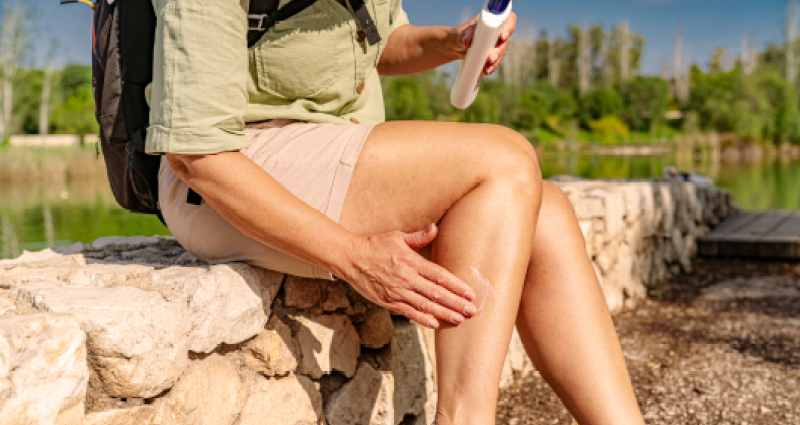As summer activities ramp up, it’s easy to overlook the risks of prolonged sun exposure.
Skin cancer remains the most common cancer in the U.S., and while the sun may feel great, its ultraviolet (UV) rays can pose serious health risks over time.
Family medicine physician Danielle G. Raley, MD, with St. Francis Medical Group shares essential steps to help protect your skin while enjoying all that summer has to offer.
The Risk Is Real
UV rays from the sun can damage the DNA in skin cells, leading to premature aging and, over time, skin cancer. That risk exists even on cloudy or cooler days. But the good news is that with a few smart habits, much of this damage can be prevented.
1. Cover Up When You Can
Protective clothing is your first line of defense. Lightweight long-sleeved shirts, wide-brimmed hats and sunglasses with UV protection can help shield your skin from harmful rays. Don’t forget that certain fabrics offer more UV protection than others.
2. Apply (and Reapply) Sunscreen
Sunscreen with SPF 30 or higher is recommended for everyone, regardless of skin tone. Apply it generously to all exposed skin and reapply every two hours, or more often if swimming or sweating. While spray sunscreens are convenient, lotions provide more consistent coverage.
3. Plan Around Peak Sun Hours
The sun’s rays are strongest between 10 a.m. and 4 p.m. During these hours, try to seek shade, wear extra layers or take breaks indoors. Staying out of direct sunlight during this window reduces the risk of sunburn and long-term damage.
4. Keep an Eye on Your Skin
Regular self-exams can help you spot warning signs of skin cancer early. Be on the lookout for new moles or spots, or changes to existing ones. If you notice anything unusual—like a sore that doesn’t heal, or a mole that changes in size or color—make an appointment with your healthcare provider.
Other Tips to Keep in Mind
Don’t forget lips, ears and eyelids, all areas prone to burning. Use lip balms with SPF and mineral-based sunscreen near the eyes.
Babies under six months should be kept out of direct sunlight and dressed in protective clothing, as their skin is too sensitive for sunscreen.
People of all skin tones need sun protection. While melanin provides some natural defense, it does not eliminate the risk of skin cancer.




